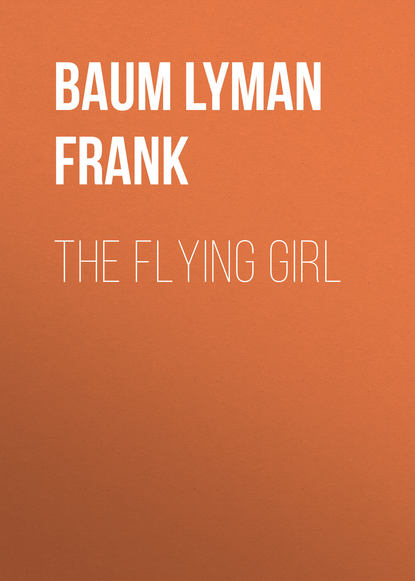По всем вопросам обращайтесь на: info@litportal.ru
(©) 2003-2024.
✖
The Flying Girl
Настройки чтения
Размер шрифта
Высота строк
Поля
“But you cannot be eighteen yet!”
“No,” she admitted; “I am only seventeen.”
He breathed a sigh of relief.
“Then – ”
“But I am half a Burthon,” Sybil continued, “and therefore have little respect for the wishes of others – especially when they interfere with my own desires. I kept the letter my mother gave me, but had no interest in opening it until the other day.”
“And you read it then?”
“Two or three times – perhaps half a dozen – with great care.”
“Where is that letter now?”
“Where you cannot find it, clever as you are. I may say I have great respect for your cleverness, my dear uncle, since reading the letter. How paltry the story of Dr. Jekyl and Mr. Hyde seems after knowing you!”
He moved uneasily in his seat; but the man was on the defensive now, and eyed his accuser steadily.
“You seem much like your mother,” he suggested, reflectively.
“But you are wrong; I am more like my father.”
He shrugged his shoulders.
“What matter, my child? You have a rare inheritance, on either side.”
They sat in silence a moment. Then he said:
“You have not yet confided to me your errand.”
“True. I have a request to make which I am sure you will comply with. You must stop annoying the Kanes.”
He smiled at her.
“You have marked them for your own prey – you and your precious father?”
“Yes. Your persecution must cease, and at once.”
He seemed thoughtful.
“I have an end in view,” said he; “an important end.”
“I know; you want to force Orissa to marry you. But that is absurd. She is scarcely half your age, and – she despises you.”
He flushed at this.
“Nevertheless – ”
“I won’t have it!” cried Sybil, sternly. “And, another thing: you must withdraw your aëroplane from the aviation meet to-morrow.”
“Must?”
“I used the word advisedly. I have the power to compel you to obey me, and I intend to use it.”
He sat watching her with his eyes slightly narrowed. Sybil was absolutely composed.
“Your mother, my dear,” he presently remarked, “was a – charming woman, but inclined to be visionary and imaginative. I have no idea what she wrote in that letter, but if it is anything that asperses my character, my integrity or fairness, it is not true, and can only be accounted for by the fact that the poor creature was driven insane by your father, and did not know what she was doing.”
“Oh, indeed!” the girl retorted. “Is it not true, then, that you were convicted in Baltimore, twenty years ago, of a dastardly murder and robbery, and sentenced by the court to life imprisonment? Is it not true that my mother at that time contrived your escape and secreted you so cleverly that the officers of the law could never find you?”
“It is not true,” he declared, speaking with apparent effort.
“The letter states that you were arrested and convicted under the name of Harcliffe; that when active search for you was finally abandoned you went with my mother to Chicago, and there began a new life under your right name of Burthon; that there your sister met and married my father, although you opposed the match bitterly, fearing she would betray your secret to her husband. But she never did.”
“It is not true,” he repeated. “The whole story is but a tissue of lies.”
“Then,” said Sybil, “I will telegraph to the police of Baltimore that the escaped prisoner, Harcliffe, whom they have been seeking these twenty years, is here in Los Angeles, and ask them to send at once someone to identify him. You need not be afraid, for the story is false. They will come, I will point you out to them, and they will declare you are not the man. Then I will believe you – not before.”
He sat a long time, his head upon his hand, looking at her reflectively. At the same time her dark eyes were fixed upon him with equal intentness.
By and by she laughed aloud, but there was no mirth in the sound.
“Not that, dear uncle,” she said, as if he had spoken. “Am I not my mother’s daughter, and my clever uncle’s own niece? You cannot quiet me by murder, for in that case my revenge is fully provided for. I know you, and I did not venture upon this disagreeable errand unprepared. There is a plain clothes man at the street door, who, if I do not emerge from this club in – ” she looked at her watch – “in fifteen minutes, will summon assistance, guard every exit, and then search your rooms for my body. The doorkeeper has my name and knows that I am here. Therefore, to injure me now would be to thrust your head into the hangman’s noose. Afterward you will be very considerate of my welfare, for from this day any harm that befalls me will lead to your prompt arrest and the disclosure of your secret.”
He threw out his hands with a despairing, helpless gesture.
“What a demon you are!” he cried.
“I believe I am,” said Sybil, slowly. “I hate myself for being obliged to act in this dramatic fashion – to threaten and bully like a coward – but being blessed with so unscrupulous an uncle I cannot accomplish my purpose in a more dignified way.”
“State your demands, then,” said he.
“I have stated them.”
“To withdraw my aëroplane from the aviation meet would mean my ruin. I have sold my real estate and brokerage business and invested my money in aviation; I positively cannot withdraw now.”
“You must. To whine of ruin is absurd. I know that my father paid you a quarter of a million for your mine. You also obtained, without doubt, a good sum for your business. So far you cannot have invested more than a few thousand dollars in your attempt to steal Stephen Kane’s invention. My advice, sir, is to get away from here as soon as you can. Go to London or Paris, where there is more interest in aviation than here, and make a business of flying, if you will. But the Kane device is fully protected by foreign patents, and any infringement will be promptly prosecuted.”
“You are merciless,” he complained.
“You will find me so.”
“I am a member of the Aëro Club. I cannot, without arousing suspicion, withdraw my aëroplane from the meet.”
“If you do not I will telegraph to Baltimore.”
The threat seemed to crush him and still any further remonstrances.

















